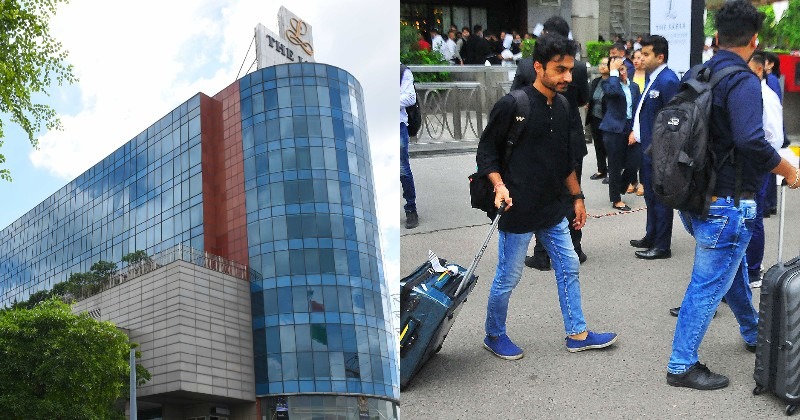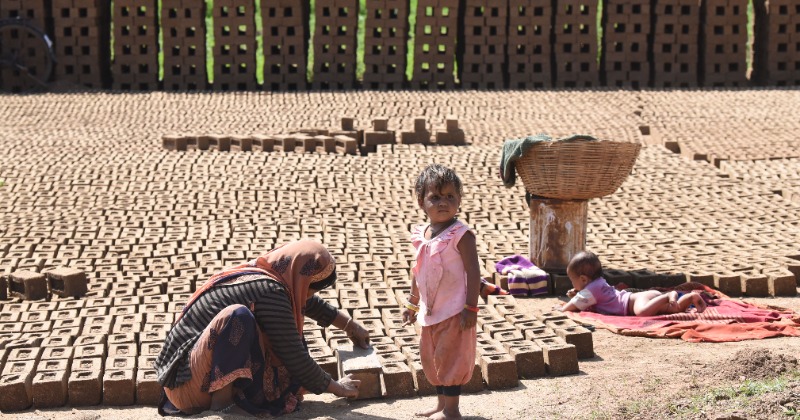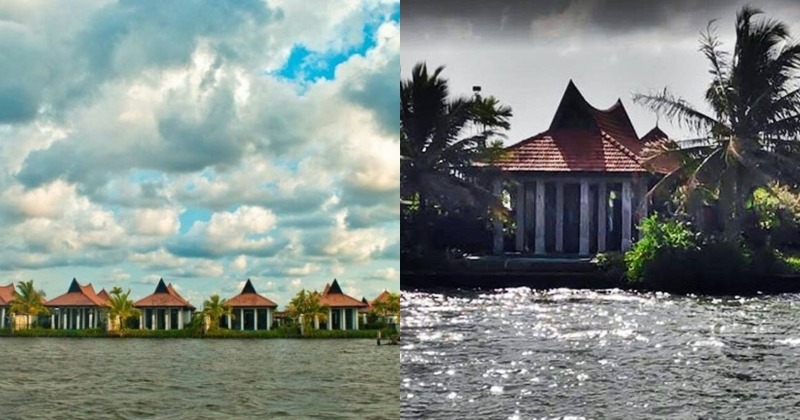The Madhya Pradesh government is set to follow two other BJP-ruled states — Uttar Pradesh and Himachal Pradesh — in passing an anti-conversion law that outlaws religious conversion solely for the purpose of marriage.
The MP Cabinet has approved the Freedom to Religion Bill, 2020 as an Ordinance.
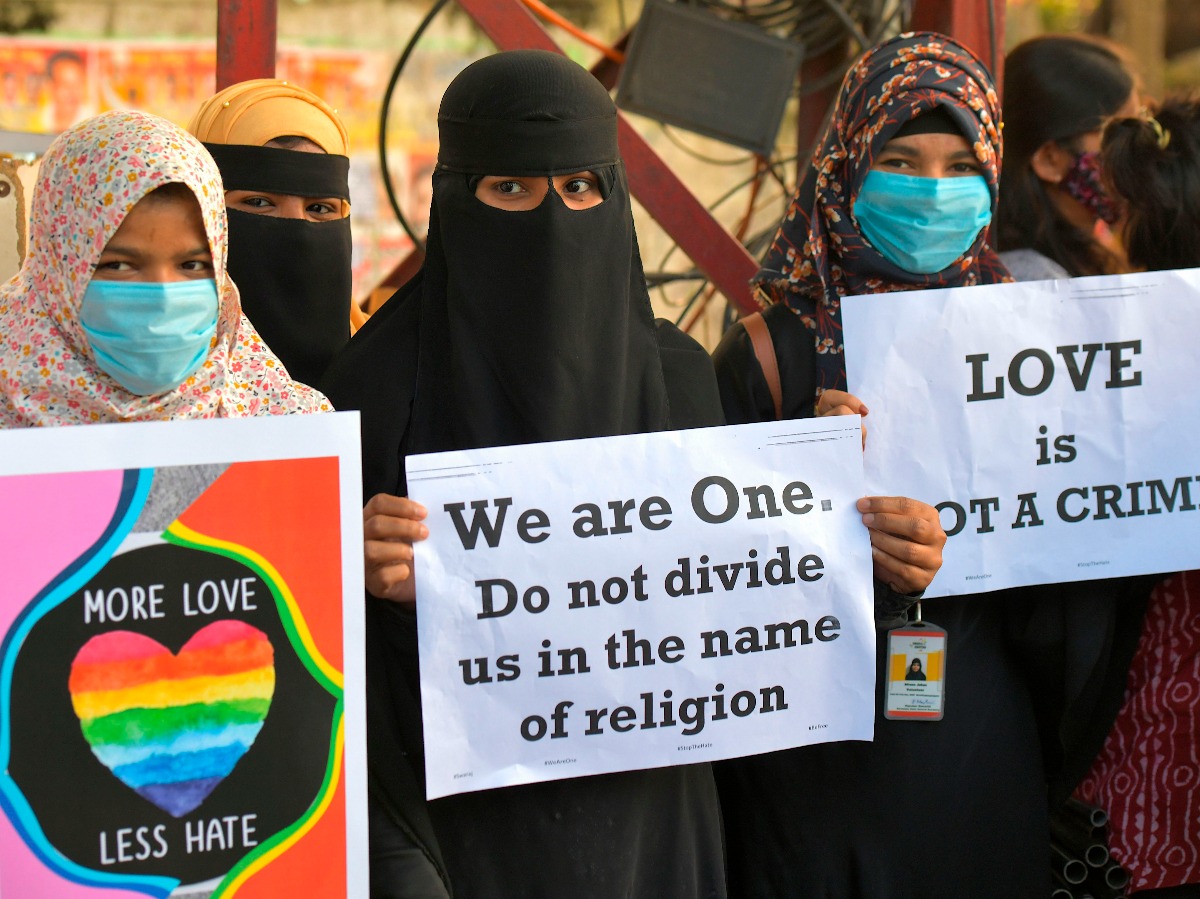
love jihad
Besides, three other BJP states — Haryana, Karnataka and Gujarat — are also mulling laws designed to prevent “forcible conversions” through marriage.
Jump To
![]()
What’s same
Under all three laws of the three states, the declaration of such a marriage stands “null and void” and the conversions are penalised if a prior approval of the state is not sought.
What’s different
The laws differ in the quantum of punishment prescribed, prior notice that the states seek, who leads the investigation, maintenance rights, and in attributing the burden of proof that a conversion is lawful. Also, the MP law seeks to protect the rights of women of such marriages.
Notifying the authorities
Madhya Pradesh: A 60-day prior “declaration of the intention to convert” to the District Magistrate for conversion to be valid, following which a couple from different religions can be legally married.
Uttar Pradesh: A 60-day notice but the law also seeks the Magistrate to conduct a police inquiry to ascertain the real intention behind the conversion.
Himachal Pradesh: Freedom of Religion Act, 2019 that came into effect in the state last week, requires a 30-day prior “declaration of intention to convert”.
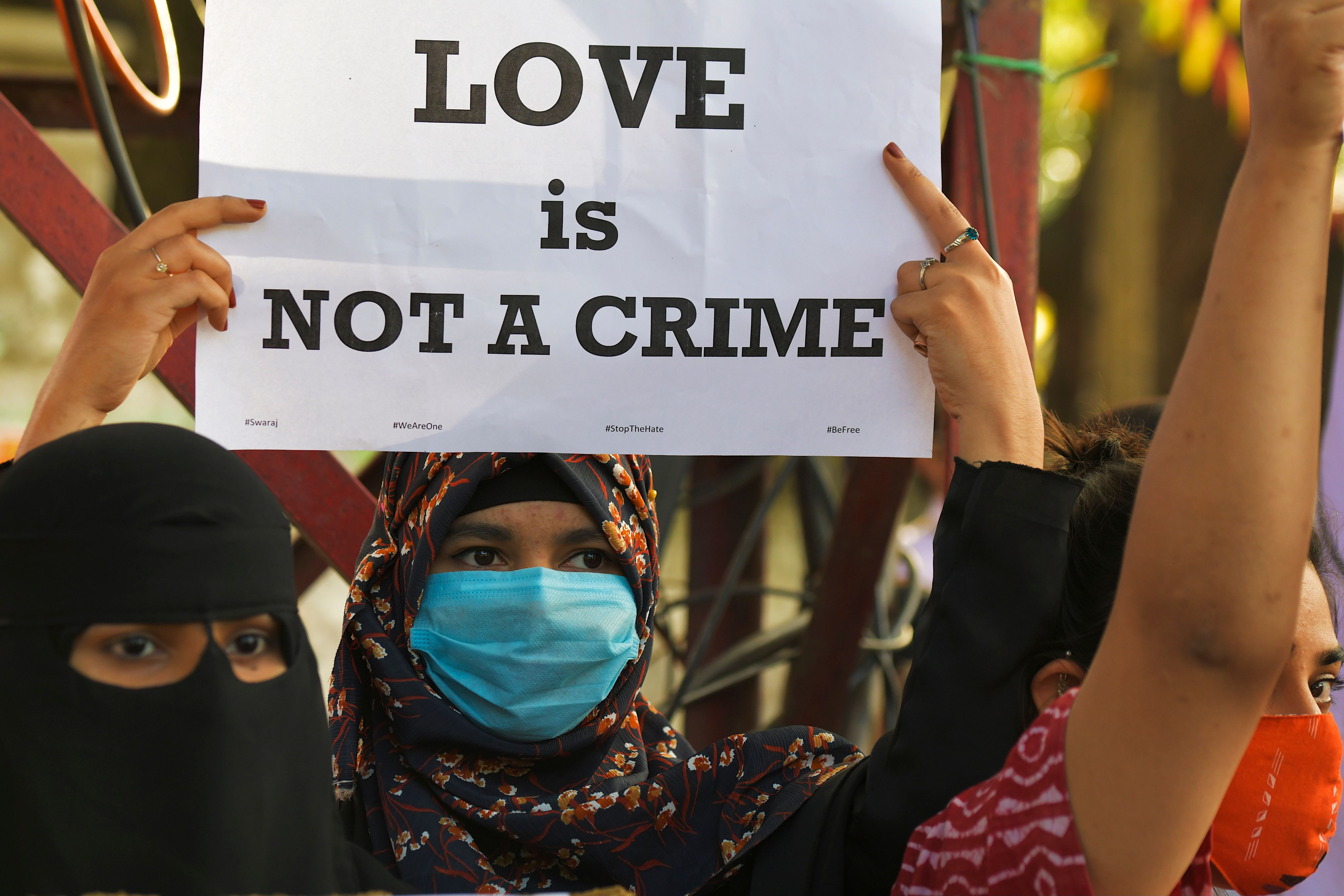
AFP
Leading the investigation
MP: Section 4 of the law states that there cannot be an investigation by a police officer except on the written complaint of the person converted or the person’s parents/siblings. Guardians of the person converted can file a complaint only with the permission of a court. The MP law also says that no police officer below the rank of a sub-inspector can investigate an offence under the law.
UP: Law allows the same people as allowed by the MP law to file a complaint.
HP: Prosecution cannot be initiated without the prior sanction of an officer not below the rank of a sub-divisional magistrate.
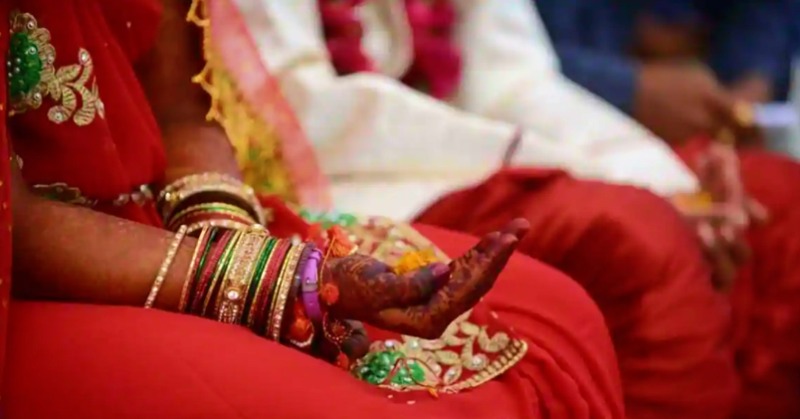
Representational Image
Laying the burden of proof
MP: Burden of proving that the conversion was done without any coercion or illegality is on the person converted
UP: Burden of proof on people who “caused” or “facilitated” the conversion and not on the individual. Even in the police inquiry, if the Magistrate is not satisfied, criminal action under Section 11 of the Ordinance can be initiated against persons who “caused” the conversion. This includes those who committed the offence; omitted to act and prevent the offence; and aided, abetted, counselled or procured people for committing the offence.
HP: Has a similar provision as of Madhya Pradesh
Right to maintainence
MP: While declaring as “null and void” any marriage in which either the husband or the wife has converted, even consensual, unless they have given prior notice to the state government, the law at the same time seeks to protect the right of women and her child from the “null and void” marriage. Under Section 9, the woman whose marriage has been declared null and void under this legislation, and her children, will have a right to maintenance. The law does not, however, provide a recourse for ensuring the marriage can be protected subsequently.
Neither the UP nor the Himachal law has such provisions.
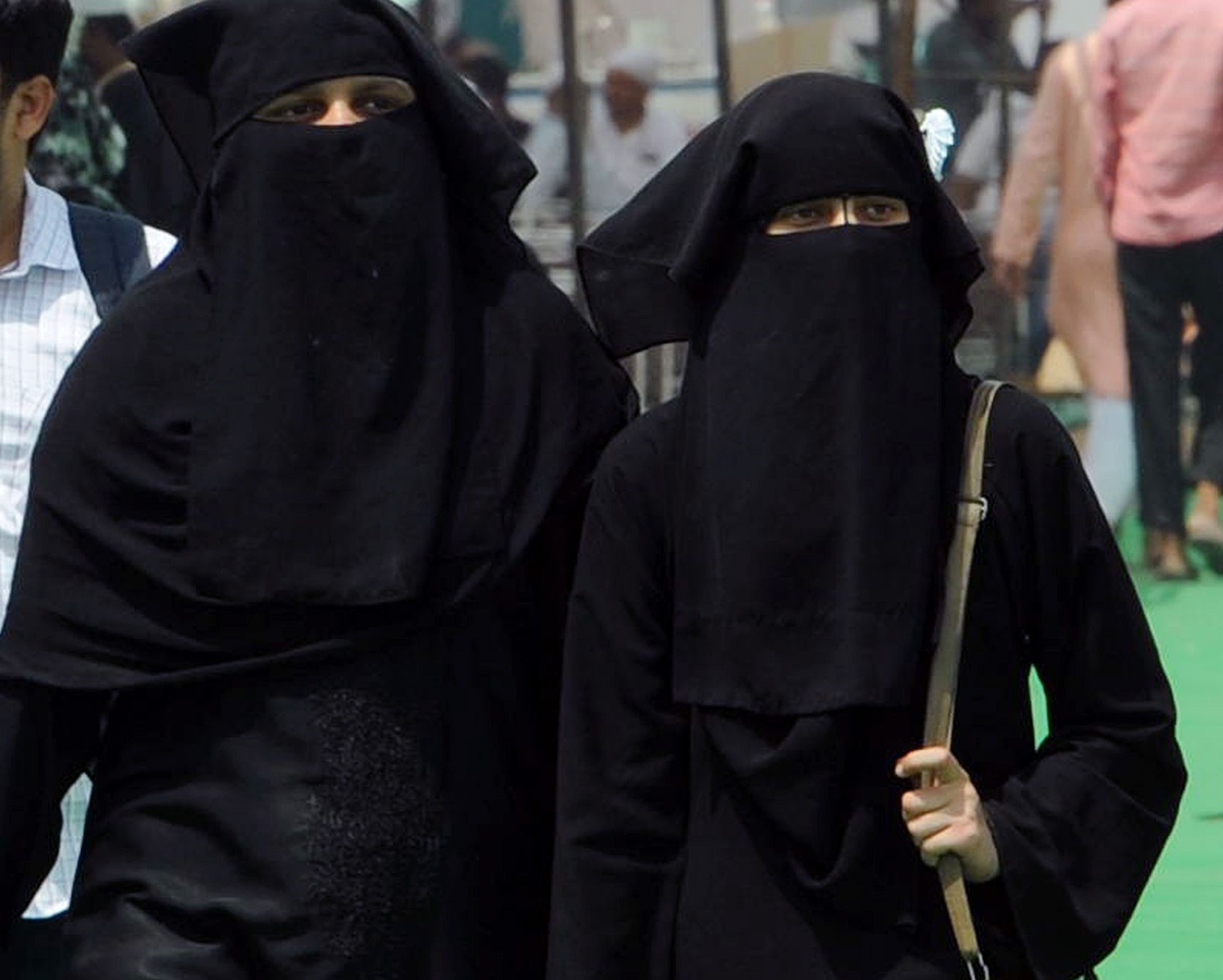
BCCL
Punishment prescribed
The offence of illegal conversion under the laws of all three states is cognisable and non-bailable, which means an arrest can be made without a warrant and bail is granted only by the discretion of the judge.
MP: Person can be sentenced to a jail term between one and five years for converting or attempting to convert unlawfully. If the person converted is a woman, a minor or a person belonging to a Scheduled Caste or Scheduled Tribe (SC/ST), the sentence is two to 10 years. It also provides for a jail term of three to 10 years for concealing one’s religion during the marriage.
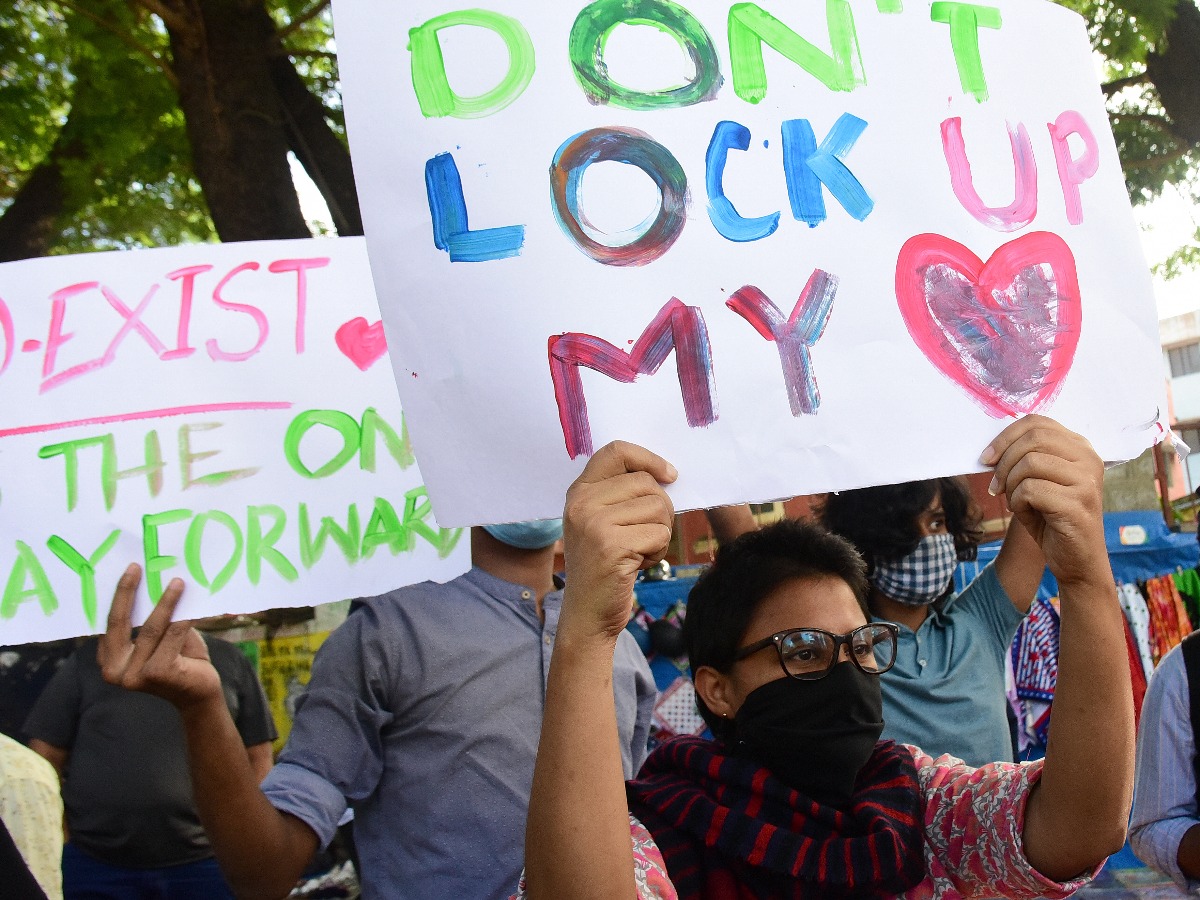
bccl
UP: Minimum punishment of one year, which can be extended up to five years, and repeat offences can carry double the maximum sentence. Men are awarded a higher punishment if convicted of causing conversion of a woman, a minor or a person belonging to an SC/ST — in which case the sentence is between two and 10 years.
HP: Person can be sentenced to a jail term of one to five years for converting or attempting to convert unlawfully. If the person converted is a woman, a minor or a person belonging to an SC/ST, the sentence is two to seven years.

